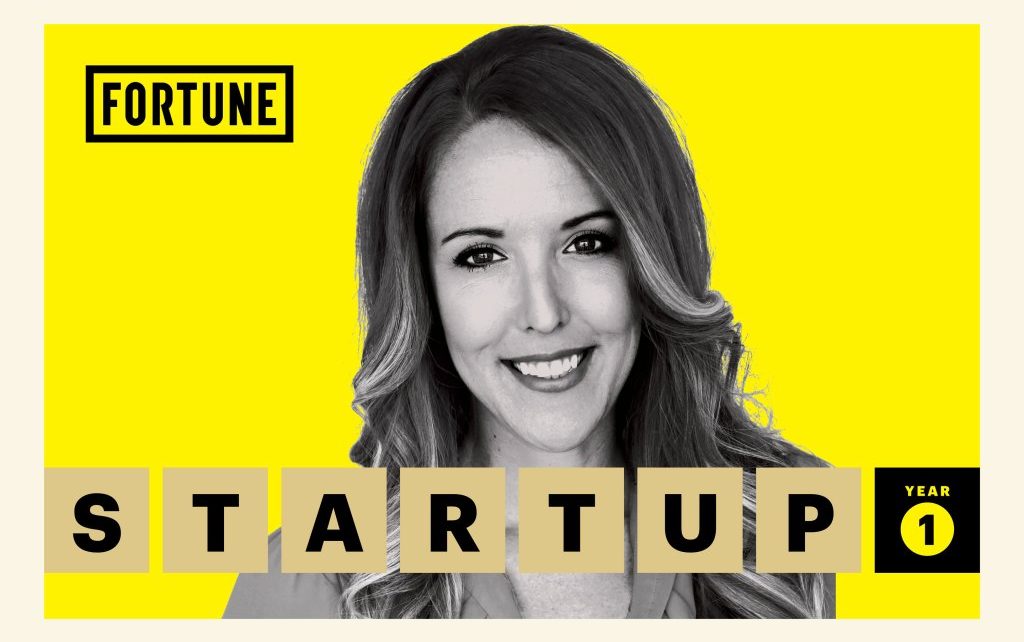This is an installment of Startup Year One, a special series of interviews with founders about the major lessons they have learned in the immediate aftermath of their businesses’ first year of operation.
Many founders fall into the trap of believing that fundraising is a rite of passage in the startup world. But it can also be hugely distracting, discouraging, and if you are a female, the odds aren’t good, to put it politely.
Former Air Force pilot and self-described serial entrepreneur Riley Rees initially went the traditional route with her startup, Sofia Health. Founded in 2019, Sofia Health is a digital platform for connecting prospective patients with physicians and specialists in western, alternative, and holistic medicine.
Estimated to be worth $120.8 billion, the mental wellness market was recently defined for the first time by the Global Wellness Institute as consisting of four sub-segments: self-improvement; meditation and mindfulness; brain-boosting nutraceuticals and botanicals; and senses, spaces, and sleep.
Fortune recently spoke with Rees, founder of Sofia Health, to learn more about the business, the lessons learned, the hurdles overcome, as well as plans for the new year.
The following interview has been condensed and lightly edited for clarity.

Fortune: You’re both a military veteran, with 20 years of service in the U.S. Air Force, and commercial pilot. Could you share a bit about your background and what brought you into the business world? (or answer: Could you share a bit about your background? What were you doing professionally prior to launching?
Rees: Before founding Sofia Health, I spent 20 years serving in the Air Force, both as an enlisted Aeromedical Evacuation Technician and an Officer turned C-17 pilot. Early in my career, I expected to leave the military and pursue a career in medicine. But I discovered the military is the perfect training ground for entrepreneurs. It provided me with an elite, unique education that has provided core fundamentals I still use every day, particularly in business operations. Being a pilot requires a particular reliance on critical thinking, preparing for a variety of situations and keeping calm and mission-focused, all of which are incredible skills to bring into a new business.
When I decided to pursue entrepreneurship, I saw it as an opportunity to bring my business skills and my interest in improving health care together. Prior to founding Sofia Health, I co-founded another health care startup focused on getting patients access to their medical records. Like many first-time founders, I faced a bumpy road with a lot of lessons, and we eventually shut the company down. From there, I went to MIT for my MBA, which is where the idea for Sofia Health emerged.
It’s daunting to launch a startup in normal times, but a health care business during a global pandemic takes a whole other level of courage and motivation. What inspired you to launch Sofia Health?
Sofia Health was inspired by personal experience: I suffered a neck injury during a workout and was told that my only options for treatment were physical therapy or medication. Desperate for another solution, I started researching alternatives for pain, eventually finding myself on WebMD and Yelp to find health care. Overall, it was a difficult experience and it opened my eyes to the challenges people face when they have chronic pain or mental health issues and want to find alternative and holistic care.
It was during graduate school at MIT that I was able to dive into consumer research and testing. I began interviewing individuals with chronic conditions and found they were all spending a significant amount of time researching alternative solutions, just like I had. An added layer of complexity was that many still didn’t have a diagnosis, so they struggled with symptoms and the search to find a provider who could treat them.
The market for holistic health is fragmented and there was nothing connecting symptoms to a provider’s capability. If you have a headache, a physical symptom, for example, you might not be aware that it could be triggered by psychological factors such as stress. This fragmentation makes it hard to find a practitioner based on symptoms alone.
And for the holistic health practitioners, the matter is complicated further by the fact that titles can vary, which can be confusing for the consumer. That’s where I saw we could make a real difference: facilitating the provider to client connection and adding transparency to their credentials, education, and provider philosophy.
Of course, we didn’t anticipate what would happen in 2020. I started working on Sofia Health in 2019, so the pandemic came at a critical period. COVID-19 has exposed significant gaps in our health care system, highlighted disparities in care, and exacerbated the need for practitioners to move toward virtual care as consumers are opting for home based care solutions. Growing a business in a pandemic is a daunting endeavor, but the fact is, access to health and wellness professionals is more important now than it has ever been. Far from being a detractor from our success, the pandemic has actually added fuel to our fire. We’ve been able to make a huge difference both for consumers and practitioners, which has allowed us to move forward with full force in light of such a difficult year.
How do you decide what kind of services to offer on Sofia Health, and who is the target audience? How do you recruit physicians and specialists to provide services, and how does this play into the greater shift toward telemedicine?
Sofia Health is designed to be a marketplace where consumers can meet providers for solutions that address their physical, mental, emotional and spiritual needs. Health and wellness professionals, ranging in titles from physicians to naturopathic physicians, functional medicine health coaches to holistic nutritionists, come together on a single platform. This increases access to care, empowering consumers with the option to choose the provider, intervention and approach that works best for them.
The shift to telehealth is part of a larger trend towards patient-centered care. Our holistic, non siloed approach to health provides a solution for a wide range of audiences and meets that need for the consumer. People who come to our platform are often triggered by a chronic or autoimmune disease, the search for an alternative solution, or the desire to engage in preventative health.
Today, our health care system is fragmented, incentives are misaligned, care is managed in silos, and the patient experience is largely absent. However, patients are starting to demand a better experience or they look elsewhere for solutions. In terms of provider growth, providers often seek us out when searching for solutions to respond to these industry shifts and new consumer demands. They want to engage directly with the consumers. Many also need a business structure—scheduling, billing—if they don’t belong to a large network or have technical acumen.
Overall, we are seeing consumers take control of their health, demand technology for flexible scheduling and virtual visits, request transparency for both services and prices, and a platform like Sofia Health allows providers to deliver this experience.
What has fundraising been like, before and since the start of the pandemic? After doing the normal fundraising circuit during your first year in business, you recently decided not to do a fundraising round last fall. What was the thought process like there?
When we were preparing to raise an initial seed round the pandemic was in full force. Everything changed—the fundraising landscape, states going into lockdown, meetings transitioned into Zoom calls. It was harder in the sense that traditional networking and meetings as we knew them were gone. We were still adjusting to this new normal but continued working on product and growth. Meanwhile, as the world was adjusting to life during a pandemic, providers and practitioners started to see the value in Sofia Health and were signing up, and our partnerships with organizations started growing.
After a few months, I noticed the process of fundraising was constantly diverting attention away from clients, customers and growth. It was also at this point I realized that, despite being in the midst of a pandemic, we had managed to bootstrap our way through and we had a product and customers. With a lean team and an intense focus on our customers, we were able to bring Sofia Health to market. So I made the decision to focus on traction versus getting a check.
Now that we have grown through the initial idea phase, I hope we can minimize outside funding and continue to reinvest all of the funds back into Sofia Health. Although this means growth will be slower, it preserves equity.
In hindsight, I think I carried around the same misconception that many founders have: raising capital is a rite of passage and an indicator of your success. In fact, I found my success in the customers and providers that we were onboarding and the traction we were able to generate, bootstrapped.
Looking forward, beyond the current public health crisis, where do you see Sofia Health in five years?
My vision for Sofia Health is to become the go-to destination for overall health and wellness and to contribute to the larger movement towards holistic health; an understanding that true health is a combination of physical, mental, and spiritual health.
A large part of our mission is expanding access to care. This access to care is not just for the affluent, but for everyone. One aspect we are passionate about as a company is our ability to connect individuals in underserved areas to providers. Our infrastructure allows us to support new businesses and in turn they can provide services to individuals who might not otherwise be able to afford it. We hope to see this expand into many communities and we can’t wait to see how this fosters the future generation of health and wellness entrepreneurs.
Ultimately, we want to eliminate health care silos and barriers, placing individuals at the center of their care and empowering them to take control of their health. We hope to grow considerably and continue to align the needs of both providers and consumers.
More must-read lifestyle and entertainment coverage from Fortune:
- The 10 best business books of 2020
- Congress COVID-19 relief bill includes $15 billion for Broadway, small music venues, movie theaters
- “The Mozart of fungi”: For ages, truffle hunting has been one of the most challenging pursuits on earth. Then the pandemic hit
- From pet adoptions to D.I.Y. home improvement to sweatpants: 10 COVID-fueled consumer trends that will endure
- How Hawaii’s COVID-19 testing program could serve as the blueprint for a broader reopening of international travel



